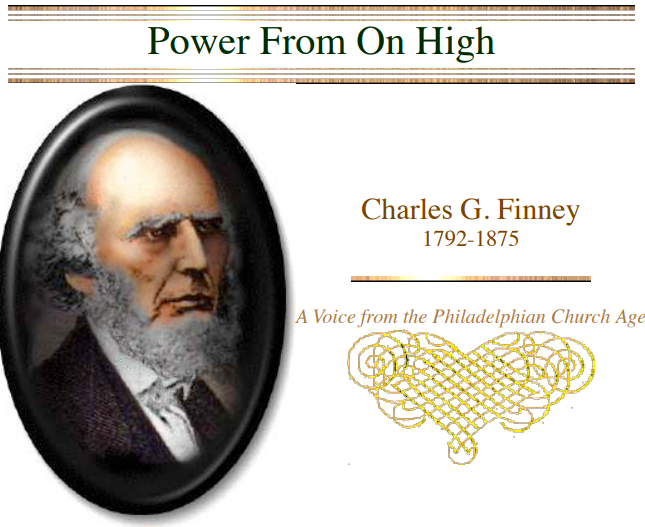Finney’s Revival in Manufacturing Village
While preaching in a manufacturing village, Charles Finney experienced a powerful manifestation of God’s power that led to a dramatic conversion of many. The day after arriving in the village and preaching, the author entered a manufacturing establishment and walked into the weaving department. There, a group of young women began to display a trifling spirit, and he felt a strong impression of their guilt and danger. He stopped and looked at them, his mind absorbed by their situation, and observed that one of them became agitated, unable to mend a broken thread because her hands were trembling. This feeling spread among the women, and soon they abandoned their looms, falling to their knees, and the entire room was filled with tears and lamentations.
The owner of the factory, an unconverted man, came in and, witnessing the scene, immediately instructed the superintendent to stop the mill. He stated, “It is more important that these souls should be saved than that this mill should run”. The factory owner asked what they should do, and the superintendent suggested using the muleroom for a meeting. All the workers were gathered in the muleroom where the author prayed and gave instruction. The word was delivered with power, and many expressed hope in Christ that day. Within a few days, nearly every hand in the establishment, including the owner, had found hope in Christ.
This experience was a testament to the power of God, as the author had not spoken a word prior to the women’s conviction. The author reflected that it was not his own power or words but the power of God working through him, “It was God speaking in and through them”. He described this power as the ability to make a saving impression on people. The author noted that this power sometimes pervaded the atmosphere around an individual, and that when Christians humble themselves and consecrate themselves to Christ, this power can lead to many conversions. He observed that the simplest statements could cut people off from their seats like a sword, rendering them almost helpless. This is the same power that was received by the apostles, which Christ had promised, and that has existed in the Church since that time.
The experience in the manufacturing village was a powerful example of how the “power from on high” can manifest, leading to immediate and profound conversions. This account illustrates the author’s belief that this power is not dependent on eloquence or human learning but is a direct action of God. He had also experienced this power personally, finding that his words would “fasten like barbed arrows in the souls of men” and that at times this power would depart from him and then return after a time of fasting and prayer.
Lessons learned from revival testimony
- The Power of God’s Presence: The story demonstrates that the power to bring about conviction and conversion does not come from human eloquence or learning, but directly from God. The author himself had not spoken any words when the women in the weaving department were overcome with a sense of their guilt and need for salvation. This illustrates that God’s power can manifest in unexpected ways, and that a Christian’s role is often to be a vessel for that power, not the source of it. This power is not limited to special occasions but can be present whenever a believer is consecrated to God’s work. This also demonstrates the importance of seeking this power, as it is the “supreme, crowning, and all-important means of success”.
- The Impact of a Holy Life: Although the author had not exhibited any specific gifts or graces of the Spirit in the moment that the women were overcome, the event clearly demonstrates the power of his presence, or that of a Christian who is seeking God. The women’s reaction to his presence suggests that there was a spiritual influence that was powerfully felt, even in silence. The account emphasizes that the power to make a saving impression can come through simple things, such as a look, a gesture, or a word. Christians are called to live lives that are holy and reflect the presence of God, as even their presence and demeanor can powerfully impact those around them. This power is not only for ministers and preachers, but for all believers, and permeates their lives and all that they do. The author states that the power “seems sometimes to pervade the atmosphere of one who is highly charged with it”.
- The Necessity of a Broken Heart: The women in the weaving department were not converted through a carefully crafted argument or a persuasive sermon. Instead, they were overcome with a deep sense of their own sinfulness. This highlights the importance of conviction as a necessary step towards conversion. The owner of the factory, though not yet converted himself, recognized the significance of the moment when he declared that the saving of souls was more important than the operation of the mill. True conversion often involves a broken and contrite heart, a recognition of one’s own sin and a turning away from it. The source describes it as a “godly sorrow that needeth not to be repented of”. The experience in the manufacturing village was not characterized by human effort but by the “power from on high”, which can cut “like a sword” and break the heart like a hammer

